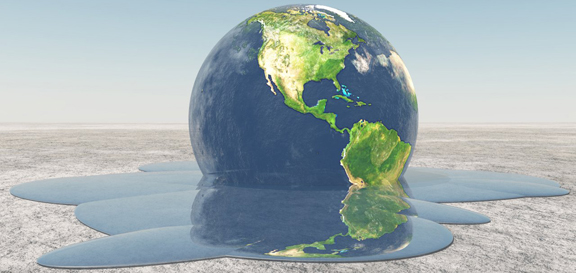As the popularity of the modern green movement has grown, many have felt that all “true conservationists” must represent the progressive “hippy” lifestyle that emphasizes nature, organic foods, and hugging trees, to use the common stereotypes. But this is not so. Even politically or culturally conservative people are joining the call for a more environmentally conscious way of life. In the following article, this trend is noted.
Bringing Conservatives Back to the Conservation Movement
By Marc Gunther (Source) | Sometime in the last decade, conservatives left the conservation movement.
Lynn Scarlett, the new director of public policy at The Nature Conservancy, wants to bring them back. It’s a big – and important – job.
Fortunately, she’s not alone. Bob Inglis, a former Republican congressman from South Carolina, leads the Energy and Enterprise Initiative at George Mason University, which aims to “unleash the power of free enterprise to deliver the fuels of the future”. A group called the Conservation Leadership Council, which is led by Gale Norton and Ed Schafer, who were interior and agriculture secretaries during the George W Bush administration, is “encouraging conservative voices to join the conversation about the environment”.
Furthermore, prominent business leaders, including John Faraci, the CEO of International Paper, and Jim Connaughton, a vice-president at Constellation Energy and a former White House official, also belong to the council.
“There are solutions to environmental problems that are consistent with conservative principles,” Scarlett told me last week at The Nature Conservancy headquarters in Arlington, Virginia. The business-friendly NGO works across party lines and has branches in all 50 states (and in 35 countries).
And Scarlett has the right credentials – pun intended – to reach Republicans and business leaders, many of whom have turned away from environmentalism. She served as deputy secretary of the interior for eight years, and before that she spent 15 years at the libertarian Reason Foundation, rising to become president of the think tank “dedicated to advancing free minds and free markets”. She’s also a lifelong and passionate birder.
Here’s why her work matters: No major environmental law has been enacted by Congress without bipartisan support.
President Nixon signed the Clean Air Act, the Endangered Species Act and the National Environmental Policy Act. The first President Bush backed the 1990 expansion of the Clean Air Act, which helped curb acid rain and introduced the principle of cap-and-trade into environmental law. And as recently as 2008, Republican presidential candidate John McCain supported climate regulation. Going back much further, a Republican president, Theodore Roosevelt, was perhaps America’s greatest champion of national parks.
In Scarlett’s view, conservatives in the 1970s, 80s, 90s and beyond generally supported the values of environmentalism – protecting land, air and water from pollution – even as they criticized “the tool kit”, meaning top-down, command-and-control rules that expanded federal power, created a drag on economic growth and mandated specific actions or technologies.
In her writings at the Reason Foundation, Scarlett called for a “new environmentalism” that relies on market incentives and flexible solutions. For example, she supported municipal “pay-as-you-throw” programs that charge homeowners and businesses fees based on the amount of trash they discarded, but remained skeptical about mandatory take-back laws.
More than anything else, it was the climate change issue that turned debate about the environment bitterly partisan.
“Climate change became a symbol of big government,” Scarlett said. “And, by the way, not only big government, but international government.” Because comprehensive carbon regulation would affect energy, transportation and manufacturing, “you had this constant refrain of ‘it costs a lot, it’s command and control, it’s intrusive,'” she said.
It didn’t help that the climate debate came after the passage of health care reform, which affects about one-sixth of the US economy, and during a period of sluggish economic growth. Fossil-fuel interests, the powerful US Chamber of Commerce and partisan media like Fox News squared off against environmental alarmists who said the climate crisis should trump all other concerns.
“The dialogue is broken,” she says. “Re-engaging conservatives significantly on conservation issues is going to be a journey.”
The Nature Conservancy, Scarlett claims, can be an organization “to engage and excite conservatives”. After all, its state chapters have deep local roots, it works closely with farmers and ranchers, and its traditional approach to conservation respects private-property rights.
Business people, she said, can’t ignore the risks posed by climate change, or the role that nature – also known as green infrastructure – can play in adaptation. TNC is working with Dow Chemical and the city of Philadelphia, for example, to develop lower-cost ways to manage waste and water.
“How can nature help us to do our work, and do it cleaner, greener and smarter?” she asks. “It’s hard to be against that.”
With the Environmental Defense Fund, Scarlett is also advising the Conservation Leadership Council as it develops market-friendly environmental policies to protect biodiversity and energy efficiency. The hope is a few modest successes will help build bridges between environmentalists and conservatives.
It will be harder to develop a bipartisan climate-change policy, which would likely involve a mix of efficiency, cleaner “traditional” energy sources like natural gas and investment in renewable-energy technology, Scarlett says. Different policies can be tested in different states to see what works and what doesn’t, she adds.
Enlisting backing from corporate America will be another challenge. This month, companies including GE, Dow Chemical, AT&T, Cargill, Siemens, PwC, KMMG and Waste Management – all of which talk about sustainability – joined fossil-fuel interests to sign a letter asking President Obama to approve of the Keystone XL pipeline, which environmentalists say would be a climate disaster.
Bird watching requires patience, I’m told. To turn conservatives and CEOs into climate activists, Scarlett will need every bit of patience she can muster.










